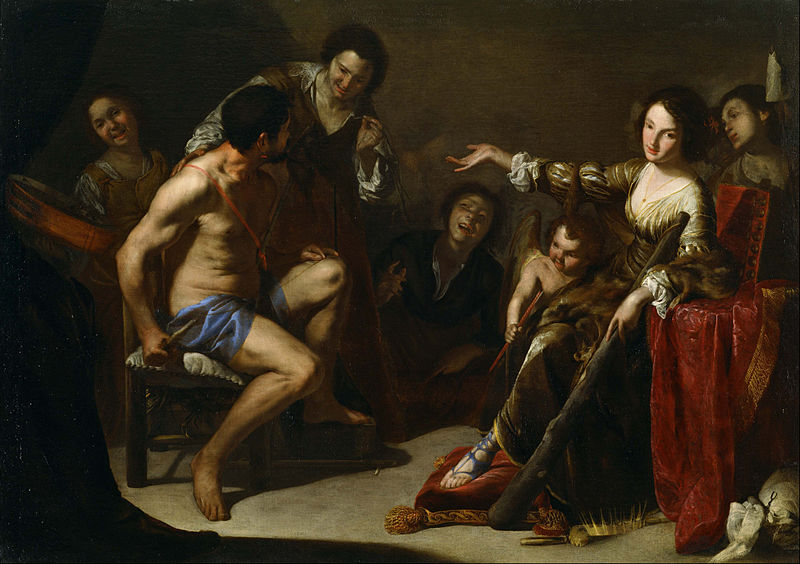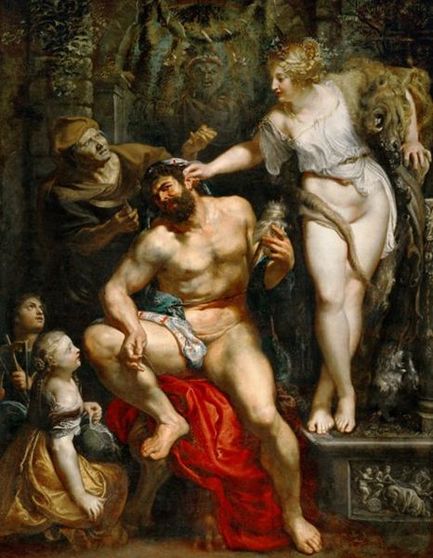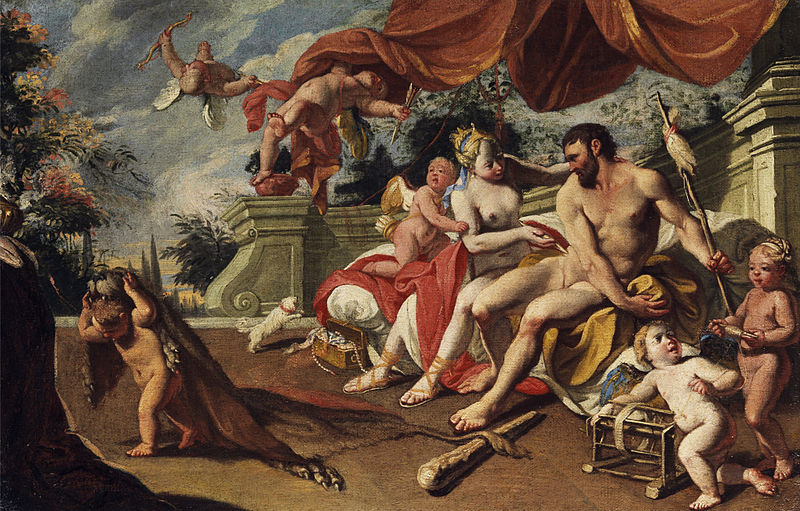OMPHALE IN GREEK MYTHOLOGY
Omphale was a queen of Greek mythology, but Omphale was not a queen of Greece, for she was the ruler of Lydia.
Omphale Queen of Lydia
Omphale was named as the daughter of King Iardanus by an unnamed woman.
Omphale was said to be married to Tmolus, the mountain god who had judged the musical contest between Apollo and Midas.
Some also call Tmolus the king of Lydia, and Omphale would thus succeed Tmolus upon his death, possibly gored by a bull, but as a god Tmolus could not die in this way, so others says that Tmolus presented the kingdom of Lydia to Omphale upon the death of her father Iardanus.
Omphale was said to be married to Tmolus, the mountain god who had judged the musical contest between Apollo and Midas.
Some also call Tmolus the king of Lydia, and Omphale would thus succeed Tmolus upon his death, possibly gored by a bull, but as a god Tmolus could not die in this way, so others says that Tmolus presented the kingdom of Lydia to Omphale upon the death of her father Iardanus.
Omphale Owner of Heracles
|
Omphale comes to the fore in Greek mythology when she buys Heracles as a slave for three silver talents, a not insignificant sum of money.
Heracles had killed Iphitus in a fit of madness, and when Hippocoon refused to cleanse him of this crime, Heracles went to an Oracle, who told him he must be sold as a slave, and the fee paid in recompense to the father of Iphitus, Eurytus. Now being a slave would be a humiliation for Heracles, but it was made worse by being a slave to a woman, and a barbarian woman at that, for Lydia was considered a barbarous nation. During this period of servitude, which was said to last three years, Heracles undertook minor labours, in a similar way to his period of servitude to Eurystheus. Thus in this period of servitude to Omphale, Heracles would bury Icarus after the son of Daedalus had fallen to his death, conquer the people of Itones who troublesome neighbours, killed the brutal vine grower Syleus, killed the deadly farmer Lityerses, and dealt with the Cercopes . Further humiliation was also said to have been placed upon Heracles by the fact that some writers have Omphale and Heracles swapping clothes; with Heracles having to undertake chores in feminine attire. |
|
Omphale Wife of Heracles
Mistress and slave though would become lovers, and Omphale would become the second wife of Heracles; the first being Megara.
In the post wedding celebrations Heracles was almost raped by the god Pan, for the god mistook Heracles for Omphale.
Omphale would become mother to at least two sons of Heracles, Agelaus (who possibly also known as Lamos or Tylon) and Tyrsenus.
Agelaus was named as ancestor of the famous Lydian king, Croesus.
Tyrsenus was credited with the invention of the trumpet, but his son of Omphale did not stay in Lydia, but instead travelled to Italy where the region was named Tyrrhenia after him.
A third son of Omphale by Heracles is occasionally named as Alcaeus, but some say that his was not the son of Omphale but the son of an unnamed Lydian slave woman. This would possibly mean that Alcaeus was also known Cleodaeus. It was often said that the Heraclid line of Lydian kings going through 22 generations came from this part of the Heracles family tree, although the kings of Lydia can also be traced back through Agelaus.
Heracles would eventually leave Lydia and Omphale, and return to Greece, where later on he would wed for a third time, to Deianira.
In the post wedding celebrations Heracles was almost raped by the god Pan, for the god mistook Heracles for Omphale.
Omphale would become mother to at least two sons of Heracles, Agelaus (who possibly also known as Lamos or Tylon) and Tyrsenus.
Agelaus was named as ancestor of the famous Lydian king, Croesus.
Tyrsenus was credited with the invention of the trumpet, but his son of Omphale did not stay in Lydia, but instead travelled to Italy where the region was named Tyrrhenia after him.
A third son of Omphale by Heracles is occasionally named as Alcaeus, but some say that his was not the son of Omphale but the son of an unnamed Lydian slave woman. This would possibly mean that Alcaeus was also known Cleodaeus. It was often said that the Heraclid line of Lydian kings going through 22 generations came from this part of the Heracles family tree, although the kings of Lydia can also be traced back through Agelaus.
Heracles would eventually leave Lydia and Omphale, and return to Greece, where later on he would wed for a third time, to Deianira.
|
|


